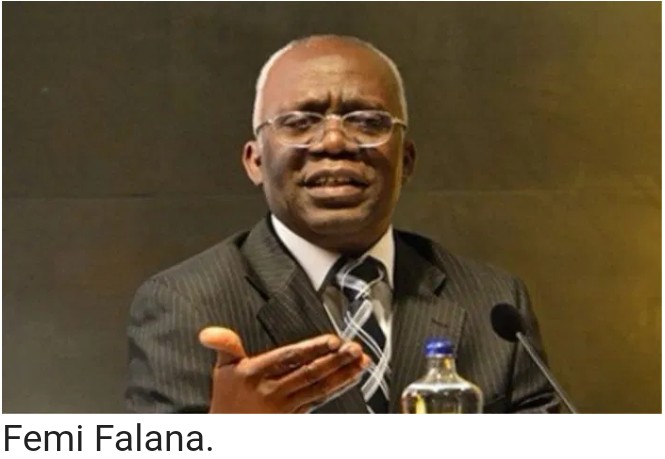JAMB, NECO Registration Fees Should be Inject into Educational Sector- Falana Tells FG
By Rabiu Musa
A lawyer and human rights activist, Mr Femi Falana, has called on the Federal Government to, without holding back, inject all the proceeds make yearly by the Joint Admission and Matriculations Board (JAMB) from the sales of forms on the Unified Tertiary Matriculation Examinations(UTME) into the public university education in the country.
He also called for proper accountability of funds generated by the National Examinations Council (NECO) from the sales of examination forms to its candidates.
Falana made the call on Tuesday in Lagos at a commemorative symposium in honour of retired and dedicated lecturers, which was organised by the Academic Staff Union of Universities (ASUU), the University of Lagos (UNILAG) chapter.
Falana, a Senior Advocate of Nigeria, spoke as a guest speaker on “Funding public education in a neo-colony: Imperatives for Nigeria’s development.”
And among high profile individuals at the event held at the Jelili Omotola Multi-purpose hall of UNILAG included the ASUU President, Prof Biodun Ogunyemi; Prof Omotoye Olorode; Prof Wale Babawale; immediate past vice-chancellor of UNILAG, Prof Rahamon Bello and former ASUU chairman, Prof Mustapha Danesi, and a host of others.
Speaking further, Falana explained that it was wrong for the Federal Government to be diverting remittance from JAMB and other government-owned examination bodies in the country to other activities outside the education sector
According to him, JAMB and other examination bodies were not set up purposely as revenue generated ventures for the government and therefore any money they are able to generate due to their prudence should not be categorised as government income let alone used for purposes other than education development.
It is even unheard off that the same JAMB which could not boast of N50 million annual remittance before is now able to remit up to N18 billion in just two years under the current leadership of the examination body.
Read Also:
“So, the government should not because of that see the proceeds from JAMB as money to use for something else other than to take care of the particular interest of public importance in the public university system.”
While noting that successive governments in the country at both federal and state levels are not being sincere in their claims that there is no money in the government coffers to inject into education and health sectors, Falana called for amendment of the Public Procurement Act to allow public universities to engage in bidding for contracts as a way of generating funds to meet their certain needs.
He also urged the government to place a 10-year embargo on the setting up of new public universities in the country with a view to letting the existing ones stabilised.
Falana however, wondered why universities with a team of leading law teachers would still be hiring outsiders to handle their legal matters and why universities with great and good architecture department would give such jobs to contractors who are not professionals.
In his remarks at the event, the President of ASUU, Prof Biodun Ogunyemi, said the union members would continue to stand against the newly introduced much-touted Integrated Personnel and Payroll Information System(IPPIS) in the university system.
“We as ASUU don’t need such system and we would never succumb to it because it would never help our university education,” he stressed.
Ogunyemi said the government should stop listening to the dictates and advice of international financial institutions such as the World Bank and International Monetary Fund (IMF) in running the economy.
He noted that advice is not to the benefits of Nigerians.
Earlier in his welcome address, the chairman of ASUU, UNILAG chapter, Dr Dele Ashiru said the essence of the symposium and award ceremony was to find a common solution to the problem of funding daily thwarting development of university education in the country and also celebrate the retired members of ASUU in the university who had contributed immensely to the growth and development of ASUU and the university education in the country.
He said doing so would also encourage those still in service and incoming ones to know there is a reward in selfless service and act accordingly.



























